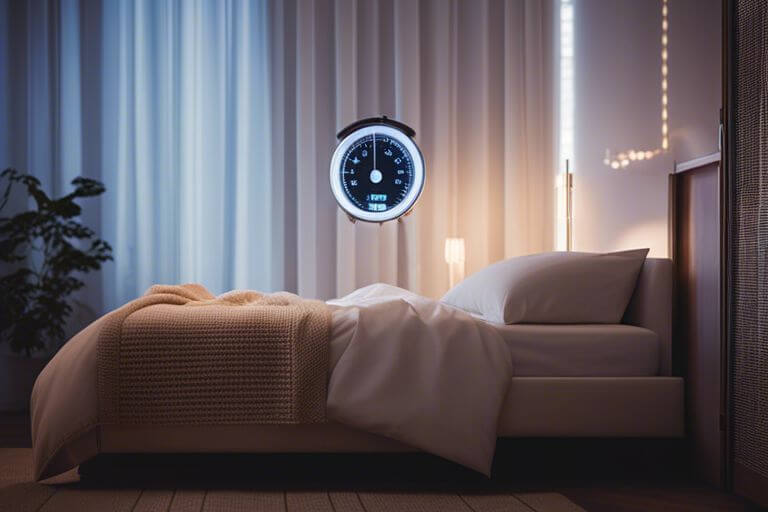Thermoregulation and Sleep – Finding Your Ideal Bedroom Temperature
BedroomTemperature plays a crucial role in the quality of sleep we get each night. Temperature can either promote restfulness and deep slumber or disrupt our sleep patterns, leading to issues like fatigue and insomnia. Finding the ideal bedroom temperature is imperative to ensuring a good night’s rest. In this blog post, we will explore the relationship between thermoregulation and sleep, and provide tips on how to create the perfect sleep environment by adjusting the temperature in your bedroom.
Understanding Thermoregulation
How the Body Regulates Heat
For our bodies to function optimally, maintaining a stable internal temperature is crucial. The hypothalamus, a region in the brain, plays a vital role in regulating body temperature. When our core temperature deviates from the set point, the body activates mechanisms to either generate or dissipate heat to restore balance. These mechanisms include sweating, vasodilation, and shivering, depending on whether the body needs to cool down or warm up.
The Impact of External Temperature on Sleep Quality
On average, the ideal bedroom temperature for sleep is between 60-67°F (15.6-19.4°C). External temperatures can significantly affect our quality of sleep. Higher temperatures can lead to restlessness, increased wakefulness, and overall discomfort, while lower temperatures can cause vasoconstriction, making it harder to fall asleep. Finding a balance that suits your comfort preferences is crucial for a good night’s rest.
Understanding the Impact of External Temperature on Sleep Quality:
| Higher Temperatures | Lower Temperatures |
| Lead to restlessness and increased wakefulness | Can cause vasoconstriction and make it harder to fall asleep |
| Overall discomfort | May disrupt the sleep cycle |
The Ideal Sleep Environment
Factors Affecting Bedroom Temperature
An optimal bedroom temperature is crucial for a good night’s sleep. Factors such as body heat, bedding material, and room ventilation all play a role in determining the ideal temperature for sleeping. Perceiving what works best for you is imperative for a restful night.
| Factors | Impact |
| Body Heat | Regulates body temperature |
| Bedding Material | Affects insulation |
| Room Ventilation | Controls airflow |
Creating the Optimal Sleep Conditions
To achieve the perfect sleep environment, factors like lighting, noise levels, and bedtime routine play a significant role. Maintaining a consistent sleep schedule and incorporating relaxation techniques can also contribute to a better sleep quality.
Practical Tips for Bedroom Thermoregulation
Strategies for Maintaining Ideal Temperature
Bedroom thermoregulation is crucial for a restful night’s sleep. Implement the following strategies to maintain the ideal temperature in your bedroom:
| Keep it Cool | Avoid Excessive Heating |
| Ensure proper ventilation and use fans if necessary. | Avoid setting the thermostat too high, as it can disrupt your sleep. |
Assume that implementing these strategies will help you find your optimal sleeping temperature.
Gadgets and Technology to Aid in Thermoregulation
One of the easiest ways to aid in thermoregulation is by leveraging gadgets and technology. Invest in a smart thermostat that allows you to control the temperature in your bedroom remotely. Additionally, consider using cooling pads or mattress toppers that can help regulate your body temperature throughout the night.
Temperature controlled devices such as cooling fans or heated blankets can also be used to adjust the ambient temperature in your bedroom. These technological advancements can be effective tools in helping you achieve a comfortable and conducive sleep environment.
Health Benefits and Risks
Advantages of Proper Thermoregulatory Practices
Your sleep environment plays a crucial role in ensuring a restful night’s sleep. Maintaining the ideal bedroom temperature can have numerous health benefits, including improved sleep quality, enhanced metabolism, and better immune function. When your body can thermoregulate effectively during sleep, it can help promote relaxation and allow your body to repair and rejuvenate itself.
Potential Risks of Extreme Temperatures and Disrupted Sleep
The temperature of your bedroom can significantly impact your sleep quality and overall health. Extreme temperatures can lead to disrupted sleep patterns, increased stress levels, and potential health risks. Sleeping in a room that is too hot or too cold can interfere with your body’s natural ability to regulate its temperature, leading to restlessness, frequent awakenings, and even potential health issues such as cardiovascular strain and compromised immune function.
The
| Extreme Temperatures | Disrupted Sleep |
| Can lead to health risks | Interferes with body’s natural temperature regulation |
| Increases stress levels | Causes restlessness and frequent awakenings |
| Compromises immune function | Potential cardiovascular strain |
Conclusion
Conclusively, finding your ideal bedroom temperature is crucial for achieving quality sleep and optimal thermoregulation. It is recommended to keep your bedroom temperature between 60-67°F (15-19°C) to promote better sleep quality and overall health. By maintaining a comfortable sleeping environment, you can improve your sleep efficiency, reduce disruptions during the night, and wake up feeling refreshed and rejuvenated. Remember to experiment with different temperatures and bedding materials to find what works best for you and to prioritize a cool, dark, and quiet bedroom for a restful night’s sleep.

